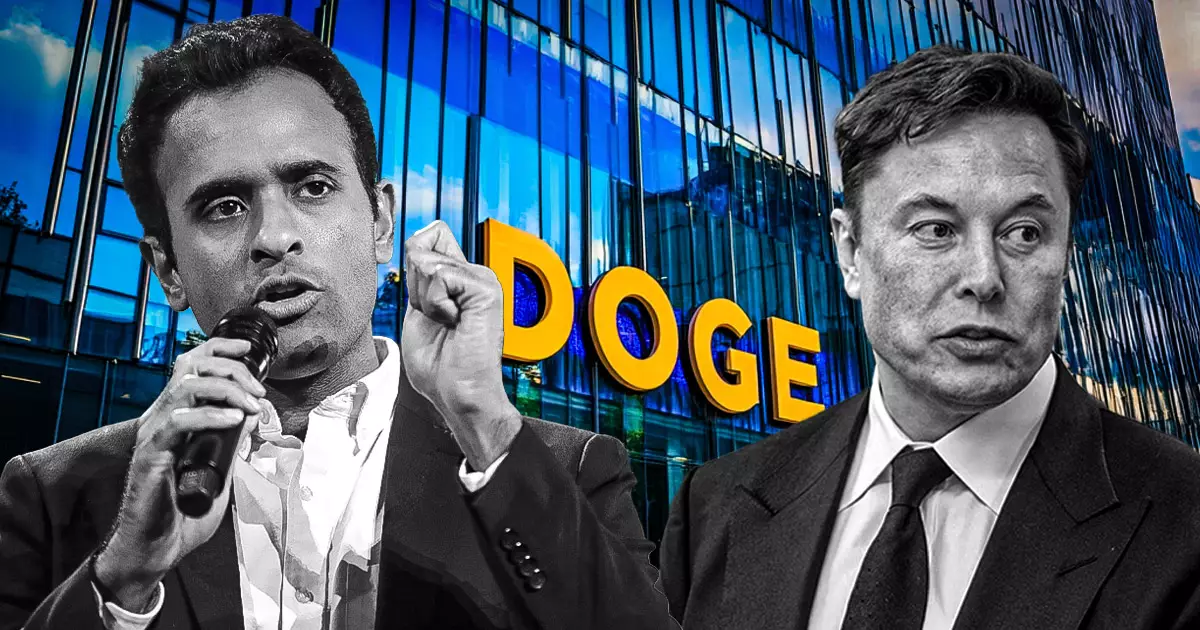In a bold move that echoes historical initiatives aimed at overhauling government processes, President-elect Donald Trump has unveiled the Department of Government Efficiency, affectionately dubbed DOGE. The announcement, made via his Truth Social platform on November 13, highlights Trump’s commitment to minimizing government waste and modernizing federal bureaucracy. Drawing parallels to the Manhattan Project—an ambitious wartime endeavor—Trump suggests that DOGE is integral to his broader “Save America” campaign, aiming to reshape the national budget of $6.5 trillion.
At the helm of DOGE are two influential figures: Elon Musk, the enigmatic tech entrepreneur and founder of SpaceX and Tesla, alongside Vivek Ramaswamy, a prominent business mogul and former presidential candidate. The combination of Musk’s tech-savvy innovations and Ramaswamy’s political insights positions DOGE uniquely to address deeply ingrained governmental inefficiencies. Both leaders are noted for their advocacy of cryptocurrency, which signals a possible pivot towards integrating technological advancements in public policy.
Musk’s recent support during Trump’s rallies underscores a shared ideological alignment, while Ramaswamy’s endorsement after exiting the race marks a strategic partnership aimed at driving effective governance. Their collaborative vision seeks not only to cut waste but reshape how government engages with technology and innovation.
DOGE’s mission is plainly defined: eradicate wasteful expenditures and usher in a more effective governing body. With ambitious goals set for July 4, 2026—coinciding with the USA’s 250th anniversary—Trump expresses a desire to establish a government that operates with reduced bureaucratic red tape. The initiative will operate autonomously yet closely collaborate with the White House and the Office of Management and Budget, ensuring structural reforms are well-coordinated.
Moreover, transparency appears to be a cornerstone principle for the newly formed department. Musk has pledged to keep operations open to public scrutiny, inviting citizen input on proposed cuts and potential savings. His commitment to posting updates on social media platforms, along with a projected leaderboard for wasteful expenditures, suggests a modern approach to governance that utilizes technology for accountability and public engagement.
Public Engagement and Popular Reactions
Ramaswamy’s assertion that DOGE will actively seek public contributions regarding examples of government inefficiency highlights a democratic twist within this administrative framework. By allowing the public to participate in identifying wastefulness, the initiative could foster a greater sense of civic responsibility and urgency regarding government reform.
However, while the launch of DOGE has invigorated supporters, particularly within the Dogecoin community, it’s noteworthy that the virality of this cultural phenomenon hasn’t translated directly into market success. Recently, despite an initial surge in popularity leading to a three-year high, Dogecoin’s price experienced a 10% drop shortly after the announcement. Observers remain cautiously optimistic, pondering whether Musk’s involvement can sustain interest in the cryptocurrency amidst fluctuating market conditions.
As DOGE embarks on this unprecedented journey to reshape the landscape of American governance, the outcomes remain to be seen. With high-profile backing and a clear, if ambitious, agenda, this initiative may serve as a catalyst for much-needed reform. Its success—and the possible implications for the crypto market—will depend on the impact of their proposed strategies and the public’s response to this novel approach to governance.

